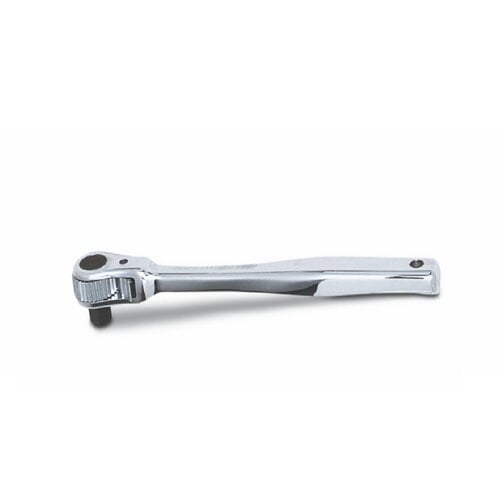Hand Tools

Elevate Your Ratchet Work with Unmatched Comfort and Control!
Are you tired of struggling with traditional ratchet handles that leave your hands sore, fatigued, and your projects incomplete? It’s time to say goodbye to discomfort and inefficiency and embrace new tool designs.
Introduction
Innovation isn’t confined to high-tech gadgets and complex machinery in the realm of tools and equipment. Even seemingly simple tools like ratchet handles have undergone significant transformations in design, thanks to the pursuit of ergonomic excellence. These unassuming yet vital tools are essential for various tasks, from automotive repairs to home improvement projects. The evolution of ratchet handle designs, driven by a focus on comfort and control, has made these tools more efficient, user-friendly, and indispensable than ever before.
The Basics of Ratchet Handles
A ratchet handle is a mechanical tool for applying torque to turn nuts, bolts, and fasteners. Its primary feature is the ratcheting mechanism, which allows continuous rotation in one direction while preventing backward motion. This unique feature eliminates the need to lift and reposition the tool, making it an efficient and time-saving choice for tasks requiring repetitive movements.
Ergonomics: A Game-Changer
Ergonomics is the science of designing tools, equipment, and environments to fit the user’s capabilities and limitations. When applied to ratchet handle design, ergonomic principles have revolutionized the user experience. Manufacturers now understand that a tool that reduces strain, fatigue, and discomfort can significantly enhance productivity and overall job satisfaction.
Critical Elements of Ergonomic Ratchet Handle Designs
Handle Shape and Size: Traditional ratchet handles often had flat, angular handles that could be uncomfortable during prolonged use. Modern designs feature contoured handles that fit comfortably in the hand, distributing pressure evenly. The handle size is also adjusted to accommodate different hand sizes, preventing overexertion.
Grip Material: The choice of grip material plays a crucial role in comfort and control. Soft rubberized or textured grips provide a secure hold even in oily or wet conditions. This reduces the risk of slippage and minimizes strain on the user’s hand.
Swivel Head and Angle: Many modern ratchet handles incorporate a swivel head that allows for more flexible positioning, reducing the need to twist or turn the wrist excessively. This feature is precious when working in tight spaces where maneuverability is limited.
Variable Torque Settings: Some advanced ratchet handles offer adjustable torque settings. This feature is invaluable for precision tasks, preventing overtightening and potential damage to fasteners.
Quick-Release Mechanism: An ergonomic quick-release mechanism enables swift socket changes, eliminating additional tools to remove sockets. This saves time and effort, making the tool even more user-friendly.
Anti-Vibration Technology: Some ratchet handles incorporate anti-vibration technology for tasks involving high torque and vibrations. This technology reduces hand fatigue by minimizing the transfer of vibrations to the user’s hand.
Benefits and Impact
The incorporation of ergonomic designs into ratchet handles offers a range of benefits that extend beyond comfort and control:
- Increased Productivity: Ergonomic ratchet handles allow users to work more efficiently and for longer without discomfort, ultimately boosting productivity.
- Reduced Injury Risk: Ergonomic designs help reduce the risk of repetitive strain injuries and musculoskeletal disorders by minimizing strain and fatigue.
- Enhanced User Experience: Comfortable tools lead to a more positive overall user experience, fostering a sense of satisfaction and accomplishment.
- Wider Applicability: Ergonomic ratchet handles are more accessible to a broader range of users, including those with varying hand sizes and physical capabilities.
Conclusion
Elevate your work experience with a professional-grade ratchet. Low-cost ratchets are usually low cost because they have to give up some features to keep the cost down. Whereas professional grate ratchets cost a little more, but there is value in the extra cost that professionals rely upon. Brands such as Wright Tool, Williams, Snap-on and Urrea Tool are all top-of-the-line professional brands that are comfortable to use and will last a long time.